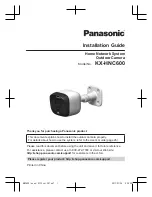
User guide
ELI
O
S
ECH001XN111-A4 – 07/2022
102
Measurement on ECHOSOFT
6.1 Evoked potential modul (ABR, ECochG et VEMP)
6.1.6
The Advanced options
This tab gives access to two kind of settings :
•
Settings about acoustique stimulation (
1
to
3
) :
(This setting only applies for
manual mode
and
automatic mode
).
1.
Clicks are short sounds, covering a spectral range
from 1kHz to 4kHz. They are characterized only
by their duration Th (see graph above).
2.
Bursts are pure tones containing a precise number
of alternations at one frequency. To avoid the
stimulator's power attack being too fast, it is nec-
essary to divide the Burst into 3 parts. We there-
fore define a number of rising alternations Tm, a
number of plateau alternations Tp and a number of
falling alternations Td. The label at the bottom of
the frame indicates the total duration in ms Tt (see
graph above).
3.
Configuration for the use of an external stimulus
source connected to the device by a Trigger cable
(Exclusive configuration for the realization of an
electric ABR - eABR)
•
Electrophysiological recording settings(
4
to
11
) :
4.
This option is use to start recording after the stim-
ulation, in our case, at 150µS (after les click).
5.
This option is used to add a delay before the Ta
stimulation. This option is useful to collect elec-
trophysiological activity before the acoustic stim-
ulation.
6.
Set the sampling frequency of the electrophysio-
logical recording.
7.
This option must be checked if you use a tube (e.g.
electroacoustic kit) between the acoustic stimula-
tor and the subject's ear in order to automatically
correct the delay and power loss induced by this
tube.
8.
This option allows you to record the signals on the
ear opposite to the stimulation. For example, if
you stimulate on the right, the recording will be
done on the left channel.
9.
Settings for the rejection and artefact control (see
Erreur ! Source du renvoi introuvable.
)
10.
Setting a digital bandpass filter on the acquisition. This is useful if your signals are noisy, or if you wish to exploit
only a part of the response. The filtering performed is an 8th order Butterworth response (4th order high pass +
4th order low pass).
11.
Automatic plotting of the curve (ex: wave I, III and V) in real-time.
12.
Choose the polarity of the stimulus used (only for the VEMP - for the other tests the stimulus always has an
alternating polarity).
See subsection
E r r e u r ! S o u r c e d u r e n v o i i n t r o u v a b l e .
for contralateral masking and
click power setting.
















































